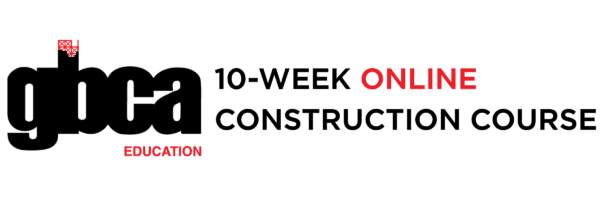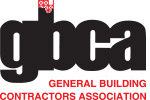
Construction Fundamentals
GBCA regularly offers online construction courses for individuals looking for a new career path and seeking to better understand current construction practices, or veterans in the construction business looking to develop their project management skills. Offered in partnership with Construction Experts Inc., these high-quality, interactive and fully online classes are taught by professionals with extensive experience in both the construction industry and teaching others to succeed.
Click HERE to see our course offerings. Courses can be taken at your own pace within the time allotted, and you may either start anytime, or take 10-week, guided courses. The 10-week courses are offered up to four times per year (please check the start date). Take individual classes or work towards GBCA’s Construction Estimating Certificate program.
GBCA Construction Estimating Certificate Program
GBCA is offering a Certificate program in Construction Estimating in partnership with Construction Experts, Inc. In this program, participants will gain a fundamental understanding of cost estimation and be able to analyze construction documents, take-offs, and other direct and indirect costs in order to develop bids that are as accurate as possible. Cost estimators work with engineers, architects, contractors, and clients to calculate accurate estimates of the time, materials, labor, and cost required to complete a project.
GBCA Construction Fundamentals Course Offerings
Self-Paced, Start Anytime Courses
Guided, 10-Week Courses









Construction Equipment & Methods
June 24 – September 01, 2024
Member $550, Non-Member $1,100
This course introduces construction equipment and selected heavy civil construction methods, including economy, selection, and productivity of common construction equipment and construction procedures for heavy civil construction and site development.
GBCA Construction Estimating Certificate Program, Certificate of Completion Request Form
If you have completed the required and elective courses (or you are taking the last course(s) now) for the GBCA Construction Estimating Certificate Program, you can submit a request to receive your program certificate:
If you have questions about the Construction Estimating Certificate Program or any of our course offerings, please contact us by clicking below:
